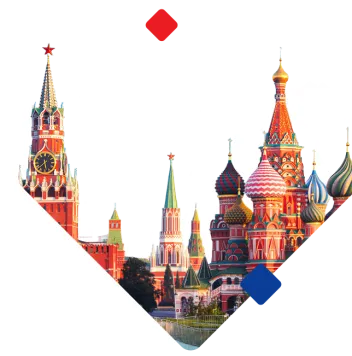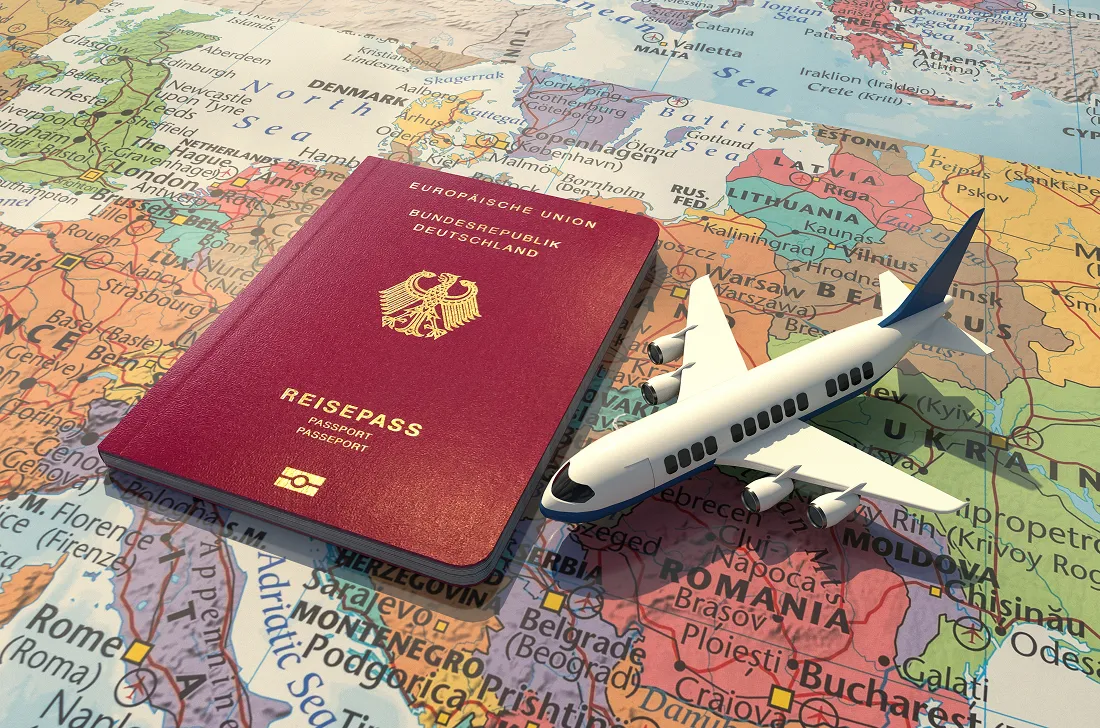As of January 1, 2024, the state resettlement program for compatriots was expanded. The program was originally adopted in 2006 by Presidential Decree № 637. In November 2023. However, in November 2023, the President introduced changes to the program, adding a new status — repatriate.
In this article, we will explain all the amendments in detail and how to determine your status.
Previously, under the compatriot resettlement program, the participant had to choose a region participating in the program, move there, and reside in that region for at least three years. During this time, the participant received certain benefits from the host region: relocation compensation, resettlement payments, unemployment benefits, preferential loans, etc.
Who is eligible for repatriation?
According to Presidential Decree No. 872 of November 22, 2023, repatriates include compatriots wishing to return to their historical homeland from among:
- individuals who held USSR citizenship, were born in or permanently lived in the RSFSR;
- citizens of the Russian Federation permanently residing in Germany as of February 24, 2022;
- individuals who have voluntarily renounced Russian citizenship;
- foreigners with direct ascendants who were born or permanently lived in the RSFSR and had corresponding citizenship, or on territories within the modern borders of the Russian Federation that were formerly part of the USSR or the Russian Empire.
Repatriates may relocate to any region of Russia, even those not participating in the State Program (e.g., Moscow or Saint Petersburg). Repatriates do not receive some state-provided benefits, but they are not required to reside in a particular region for three years. Repatriates are free to move throughout the country.
After obtaining a passport, repatriates are not required to immediately move to Russia. Many participants obtain repatriate status to have the option of moving later, for example, upon retirement or to move their entire family. The application may include all direct-line relatives: spouse, children (including stepchildren or adopted), parents (including in-laws), underage grandchildren, grandparents, and siblings under 18 or legally incapacitated.
All relatives listed in the application are also participants of the program and may obtain Russian citizenship through a simplified procedure. Moreover, it is not mandatory to relocate as a whole family at once. A repatriate can come alone to Russia and obtain citizenship, while the rest of the family may join within five years using the repatriation program certificate.
The legal framework of the program is complex because it combines two different categories of compatriots applying for citizenship — repatriates and general resettlers. The text of the decree may be difficult to interpret, so it’s important to understand which section applies to your case. Our legal team offers free consultations to help you determine the applicable category and guide your family accordingly.

Repatriation process: step-by-step instructions
A compatriot wishing to move to Russia from Germany must complete the following steps:
- Select a settlement location and apply for participation in the state program. A compatriot applies to the Russian consulate in Germany, either in Berlin or Bonn. Then, he or she makes an appointment, waits for his or her turn, and submits the necessary documents.
- After registration, the participant receives a certificate for the State Program. The documents are reviewed within 60 days of the successful submission of the application. If difficulties arise during this time in verifying the applicant’s or their family members’ submitted documents, the period may be extended up to 90 days. The certificate is issued to the applicant and includes information about them and all family members entered in the application. The certificate is valid for five years. After this time, the repatriate loses his or her status as a participant in the State Program.
- Organization of relocation to the Russian Federation. The participant arrives in the territory of Russia on his own. In this case, their family members are entitled to duty-free transportation of personal property across the border without taking into account its weight and value. If vehicles registered in Germany are imported into the Russian Federation, they must be owned by the applicant for at least 1 year prior to the date of resettlement. They must be imported to Russia not later than 1.5 years from the date of arrival of the person for permanent residence in the Russian Federation. No more than 1 automobile, motorcycle and trailer to them can be transported under the preferential procedure. When crossing the border of the Russian Federation, migration cards must be filled in. The participant and their family members must mark the purpose of the visit as “private”. The participant and their family members must have passports, migration card and participant’s certificate or its copy (if family members enter separately).
- Registration of the State Program Participant. After arriving in the Russian Federation, the participant and their family members must contact the territorial office of the Ministry of Internal Affairs of Russia (for example, in Moscow), where a mark is placed in the participant’s certificate. At this stage, the participant must have their passport, the participant certificate, and the migration card. At this point, the repatriate may also apply for program benefits.
- Migration Registration and Mandatory Procedures. Registration at the place of stay must be completed within 7 working days after arriving in Russia. After that, the repatriate can obtain a SNILS (individual insurance account number), a TIN (taxpayer identification number), and a compulsory health insurance policy (OMS). From the moment of entry into Russia, the repatriate has 90 days to complete a medical examination, fingerprinting, and photographing.
- Obtaining Russian Citizenship. After completing all the legally required procedures, the repatriate submits an application for Russian citizenship to the territorial office of the Ministry of Internal Affairs or a Multifunctional Migration Center located in major Russian cities. Within three months, the Ministry of Internal Affairs makes a positive or negative decision on the application.
- Oath of Allegiance. If the repatriate receives a notification of a positive decision within the established timeframe, the Ministry schedules the date and time for the oath of allegiance. After completing this procedure, the compatriot becomes a full-fledged citizen of the Russian Federation!
- Issuance of Russian Passport. After taking the oath, the new citizen submits documents to the Ministry of Internal Affairs to receive an internal Russian passport. Military registration is also completed.
What documents are required for repatriation?
To participate in the state program you need to submit:
- Completed application for participation in the state program;
- Reisepass and Ausweis;
- Documents confirming the identity of the family members of the repatriate;
- Diplomas, professional qualifications and skill and titles;
- 2 photos of 3.5×4.5 cm;
- Birth certificate and marital status;
- Documents proving the grounds for obtaining the status of a repatriate.
If there are no original documents, archive extracts are provided instead. Copies are made of all provided documents. Documents in German are translated into Russian. A notary or an official from the consulate certifies the authenticity of the translator’s signature. Documents issued in Germany are apostilled by authorized bodies.
Benefits for repatriates under the program
Repatriates are entitled to the following benefits under the resettlement program:
- Simplified acquisition of Russian citizenship, bypassing the stages of temporary residence permit and permanent residence;
- Reimbursement of expenses related to visa and legal status processing;
- Duty-free import of personal belongings, including a vehicle;
- Exemption from the comprehensive Russian language exam if the applicant has a diploma or educational certificate issued by the USSR or Russia;
- The right to choose any region of the Russian Federation for residence;
- Employment without needing additional work permits;
- Access to medical care, education, and other social services.
Additional support is available in some regions of the Russian Federation.
For example, in the Kaliningrad region, a payment of 32,000 rubles is provided per person, and expenses of up to 135,000 rubles are reimbursed for social adaptation. In the Far East, under the “Far Eastern Hectare” program, one can receive a land plot of 1 hectare free of charge for farming, business, or building a house.
The Compatriot Resettlement Program, in effect since 2006 and updated in 2023, offers unique opportunities for those who wish to return to their historical homeland. With the introduction of the new repatriate status, additional benefits and a simplified procedure for obtaining a Russian passport have become available, making the process more flexible and convenient.
However, processing the necessary documents and understanding all the program’s nuances can be complicated due to the complex legal framework and different categories of participants.
Our company, with extensive experience and expertise in migration law, is ready to provide you with comprehensive assistance. Our specialists will help you understand your situation, properly prepare documents, and offer support at every stage of obtaining citizenship. We offer free consultations so you can confidently move towards your goal — legalizing your status in Russia. Contact us, and we will help make this process as simple and comfortable as possible for you and your family.
